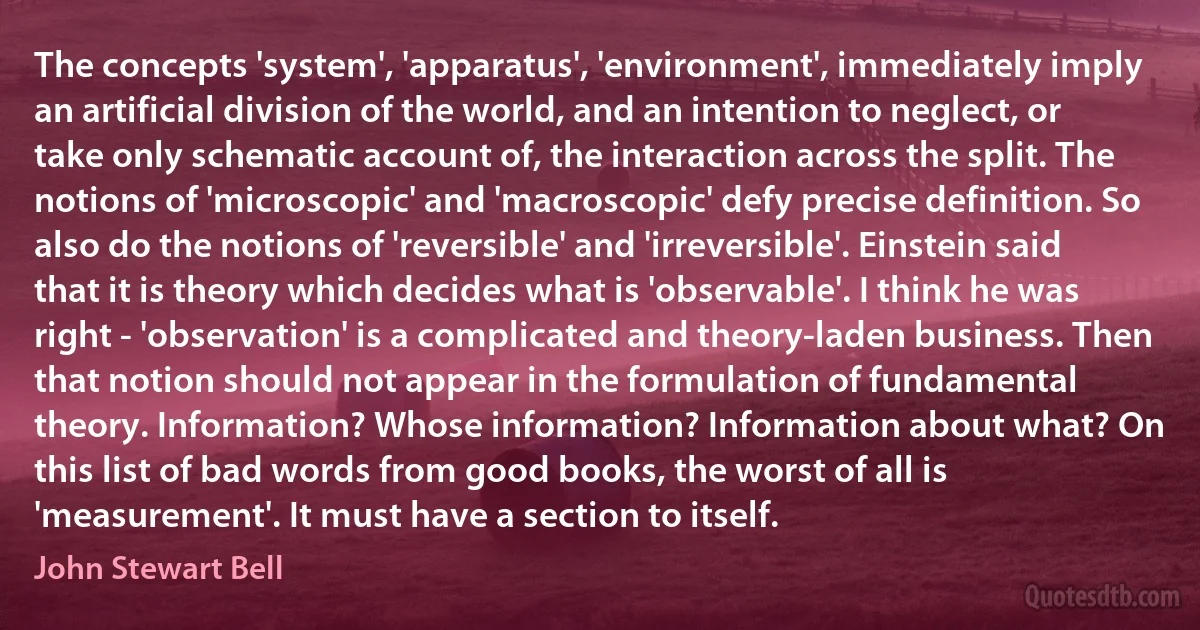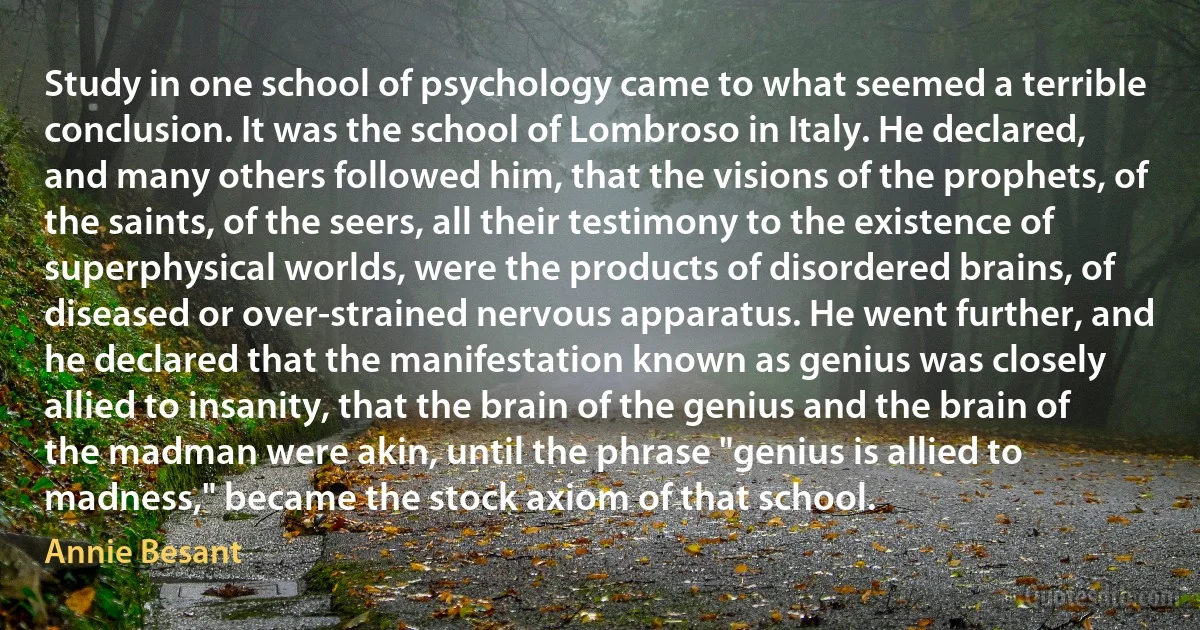Apparatus Quotes - page 4
The international community invested much effort and hope in the Reformists, but they're pre-screened, pre-approved loyal opposition. More and more of their supporters are realizing it's futile to promote change from within because Iran's paramilitary mafia still occupy the top of the pyramid. Khamenei controls every apparatus of state: legislature, politics, information and military.

Reza Pahlavi
For want of the apparatus of propositional functions, many logicians have been driven to the conclusion that there are unreal objects. It is argued, e.g., by Meinong, that we can speak about "the golden mountain," "the round square," and so on; we can make true propositions of which these are the subjects; hence they must have some kind of logical being, since otherwise the propositions in which they occur would be meaningless. In such theories, it seems to me, there is a failure of that feeling for reality which ought to be preserved even in the most abstract studies. Logic, I should maintain, must no more admit a unicorn than zoology can; for logic is concerned with the real world just as truly as zoology, though with its more abstract and general features.

Bertrand Russell
Children are made to learn bits of Shakespeare by heart, with the result that ever after they associate him with pedantic boredom. If they could meet him in the flesh, full of jollity and ale, they would be astonished, and if they had never heard of him before they might be led by his jollity to see what he had written. But if at school they had been inoculated against him, they will never be able to enjoy him. The same sort of thing applies to music lessons. Human beings have certain capacities for spontaneous enjoyment, but moralists and pedants possess themselves of the apparatus of these enjoyments, and having extracted what they consider the poison of pleasure they leave them dreary and dismal and devoid of everything that gives them value. Shakespeare did not write with a view to boring school-children; he wrote with a view to delighting his audiences. If he does not give you delight, you had better ignore him.

Bertrand Russell
Annette's communiqué is anodyne; a giggling confession off camera (shower-curtain rain in the background) that the famous Manfred Macx is in Paris for a weekend of clubbing, drugging, and general hell-raising. Oh, and he's promised to invent three new paradigm shifts before breakfast every day, starting with a way to bring about the creation of Really Existing Communism by building a state central planning apparatus that interfaces perfectly with external market systems and somehow manages to algorithmically outperform the Monte Carlo free-for-all of market economics, solving the calculation problem. Just because he can, because hacking economics is fun, and he wants to hear the screams from the Chicago School.

Charles Stross
When we are struggling against overwhelming odds, when we are pitting ourselves against the combined might of state apparatus and military power, we are sometimes subject to doubts - usually the doubts of those whose belief in the permanence of an existing order is absolute. It is amazing how many people still remain convinced that it is wise to accept the status quo.

Aung San Suu Kyi
A final moral concerns terminology. Why did such serious people take so seriously axioms which now seem so arbitrary? I suspect that they were misled by the pernicious misuse of the word ‘measurement' in contemporary theory. This word very strongly suggests the ascertaining of some preexisting property of some thing, any instrument involved playing a purely passive role. Quantum experiments are just not like that, as we learned especially from Bohr. The results have to be regarded as the joint product of ‘system' and ‘apparatus,' the complete experimental set-up.

John Stewart Bell
More generally, the hidden variable account of a given system becomes entirely different when we remember that it has undoubtedly interacted with numerous other systems in the past and that the total wave function will certainly not be factorable. The same effect complicates the hidden variable account of the theory of measurement, when it is desired to include part of the 'apparatus' in the system. Bohm of course was well aware of these features of his scheme, and has given them much attention. However, it must be stressed that, to the present writer's knowledge, there is no proof that any hidden variable account of quantum mechanics must have this extraordinary character. It would therefore be interesting, perhaps, to pursue some further 'impossibility proofs,' replacing the arbitrary axioms objected to above by some condition of locality, or of separability of distant systems.

John Stewart Bell
The first charge against 'measurement', in the fundamental axioms of quantum mechanics, is that it anchors there the shifty split of the world into 'system' and 'apparatus'. A second charge is that the word comes loaded with meaning from everyday life, meaning which is entirely inappropriate in the quantum context.

John Stewart Bell
While our view of the world is filtered through our senses, evolution has, by and large, molded those senses to perceive the world accurately, for there's a severe penalty to be paid for seeing things wrongly. That holds not only for the external environment, but also for the character of others. Without accurate perceptions, we couldn't find food, avoid predators and other dangers, or form harmonious social groups. And following those perceptions is indeed the pursuit of "true beliefs”: beliefs based on evidence. Natural selection doesn't mold true beliefs; it molds the sensory and neural apparatus that, in general, promotes the formation of true beliefs.

Jerry Coyne
And how will the New Republic treat the inferior races? How will it deal with the black? how will it deal with the yellow man? how will it tackle that alleged termite in the civilized woodwork, the Jew? Certainly not as races at all. [...] And the Jew also it will treat as any other man. It is said that the Jew is incurably a parasite on the apparatus of credit. If there are parasites on the apparatus of credit, that is a reason for the legislative cleaning of the apparatus of credit, but it is no reason for the special treatment of the Jew. If the Jew has a certain incurable tendency to social parasitism, and we make social parasitism impossible, we shall abolish the Jew, and if he has not, there is no need to abolish the Jew.

H. G. Wells
The total number of multiplications involved in the practical solution of our problem exceeds 450,000. This task alone would mean a two-year job, at 120 multiplications per hour. Fortunately, the recent invention of the Simultaneous Calculator by Professor Wilbur of the Massachusetts Institute of Technology has made it possible to perform all the necessary computations in a small fraction of the time they otherwise would have required. This apparatus solves nearly automatically a system of nine simultaneous linear equations.

Wassily Leontief
The perfect disciplinary apparatus would make it possible for a single haze to see everything constantly. A central point would be both the source of light illuminating everything, and a locus of convergence for everything that must be known: a perfect eye that nothing would escape and a centre towards which all gazes would be turned.

Michel Foucault
A great prison structure was planned, whose different levels would correspond exactly to the levels of the centralized administration. The scaffold, where the body of the tortured criminal had been exposed to the ritually manifested force of the sovereign, the punitive theatre in which the representation of punishment was permanently available to the social body, was replaced by a great enclosed, complex and hierarchized structure that was integrated into the very body of the state apparatus.

Michel Foucault
It was an important moment. The old partners of the spectacle of punishment, the body and the blood, gave way. A new character came of the scene, masked. It was the end of a certain kind of tragedy; comedy began, with shadow play, faceless voices, impalpable entities. The apparatus of punitive justice must now bite into this bodiless reality.

Michel Foucault
I have long believed that an experimentalist should not be unduely inhibited by theoretical untidyness. If he insists in having every last theoretical T crossed before he starts his research the chances are that he will never do a significant experiment. And the more significant and fundamental the experiment the more theoretical uncertainty may be tolerated. By contrast, the more important and difficult the experiment the more that experimental care is warranted. There is no point in attempting a half-hearted experiment with an inadequate apparatus.

Robert H. Dicke
My father, William C. Boulding, was a working plumber in business for himself. At the back of the house was the yard, a corrugated iron shed full of pipes, wrenches, and blow torches, and other mysterious and rather frightening apparatus. He had two faithful employees, Billy Fox, who was moody and regarded as a little queer, and Billy Sankey, who was short and cheerful. They and my father always smelled strongly of some kind of grease. My father was a gentle man. I never I never heard his voice raised in anger. He had had a very hard childhood. His father died soon after he was born; his mother married again, a man known in the family legends as "Pa Hardacre," about whom endless stories were told. He was a bigamist. He drove my father out of the house at the age of twelve to earn his own living on the streets of Liverpool. He constantly mistreated my half-aunts, Ethel and Rosie. He died before I was born, but my mother's accounts of him sounded like something out of Dickens.

Kenneth Boulding



